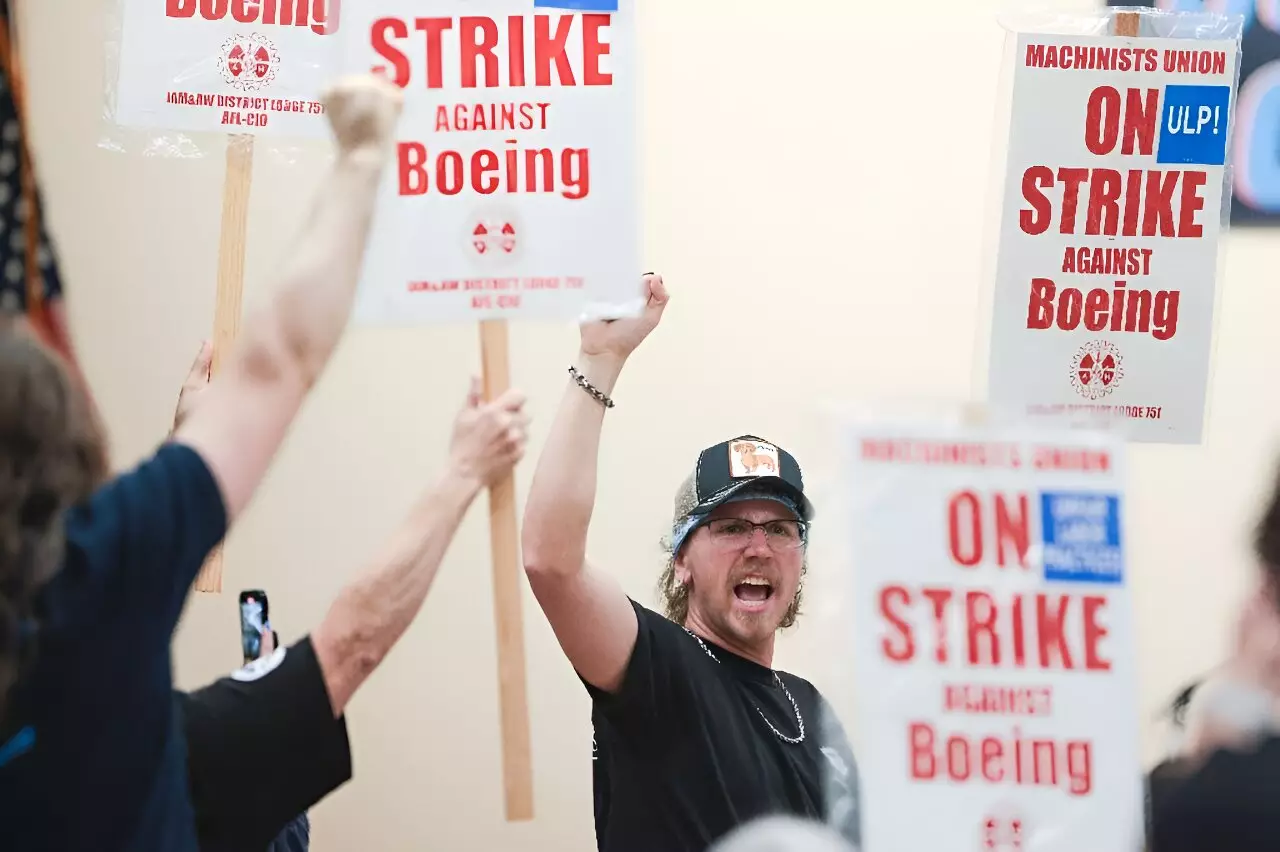In a significant escalation of labor tensions, Boeing is at the center of a major strike involving factory workers represented by the International Association of Machinists and Aerospace Workers (IAM). The decision to walk off the job came as workers overwhelmingly rejected Boeing’s contract offer, signaling deep frustration with stagnating wages amid rising living costs. The strike, the first of its kind in 16 years, marks a pivotal moment not only for Boeing but also for labor rights and negotiations in a rapidly evolving economic landscape.
The timing of the strike poses serious operational challenges for Boeing, as it effectively halts production at critical assembly plants responsible for the 737 MAX and 777 aircraft in the Puget Sound area. This disruption comes at a time when the aviation giant is already grappling with financial hurdles and heightened public scrutiny. The IAM-District 751 union, representing over 33,000 workers, has adopted a combative stance, calling for members to unify and make their demands heard, highlighting a collective sentiment that has bubbled to the surface after years of perceived neglect and inadequate compensation.
The overwhelming rejection of the tentative agreement, with 94.6 percent voting against it, underscores a significant disconnect between company leadership and the workers. The willingness of union members to initiate a strike with a staggering 96 percent vote in favor reflects a robust solidarity that Boeing’s management must urgently reckon with if they hope to stabilize operations.
To facilitate constructive dialogue, federal mediators have been called in to support negotiations. Scheduled discussions aim to bridge the divide between the union’s demands for fairer compensation and Boeing’s positioning on budget constraints and operational capabilities. The presence of the Federal Mediation and Conciliation Service (FMCS) is a strategic move, as it has a history of helping resolve conflicts in labor disputes. However, the onus remains on both sides to engage in good faith negotiations that could lead to a satisfactory resolution.
Boeing’s new CEO, Kelly Ortberg, had originally proposed a 25-percent wage increase over four years, along with commitments to reinvest in the region. However, the perception among workers that this offer fails to adequately compensate for years of stagnant wages suggests that negotiations will require more than just financial proposals. It may also necessitate a cultural shift within Boeing—a recognition of the value of its workforce and a commitment to fostering a more equitable labor environment.
A Broader Impact on Labor Relations
This strike at Boeing emerges as a bellwether for labor movements across the nation, where many workers are increasingly vocal about their needs and rights in the face of corporate decision-making. The IAM union’s directive for members to amplify their voices and stand firm on the picket lines sends a broader message about the importance of solidarity in labor movements.
As the situation unfolds, the outcome of these negotiations could set important precedents not only within the aviation industry but also across various sectors where workers grapple with similar issues. If the union successfully leverages its negotiating power, it could inspire a wave of activism, demanding better conditions and compensation as workers seek to reclaim agency in an economy where their contributions are often undervalued.
Ultimately, the spotlight shines on Boeing not just as an aircraft manufacturer but as a critical player in the evolving dialogue between corporate interests and labor rights, making this strike and its resolution consequential for all stakeholders involved.


Leave a Reply